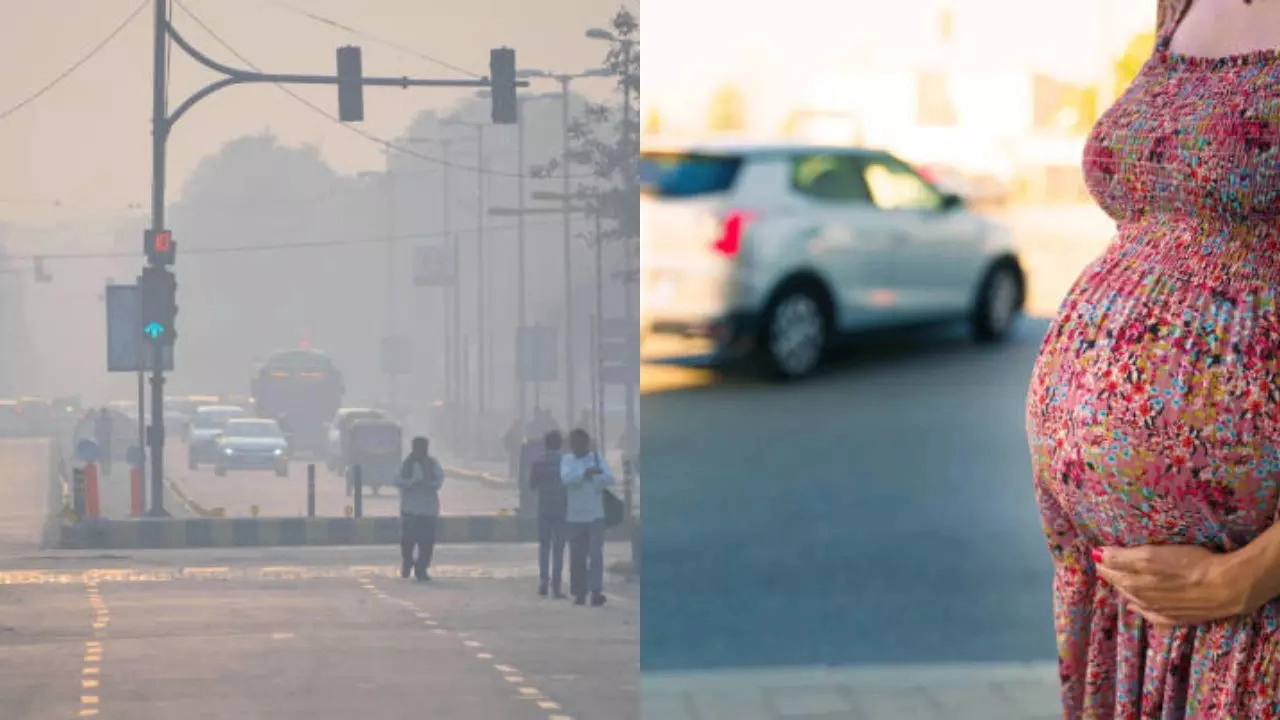Severe Pollution, AQI Levels Highly Dangerous For Pregnant Women, Fetus; Expert-backed Ways To Protect Yourself
Oct 28, 2024
News

High pollution levels increase the incidence of preterm birth - earlier than 36 weeks, low birth weight, stillbirth, and even spontaneous abortion which can be risky for a woman's life
Across Delhi-NCR, the AQI levels have reached dangerously high – around 350-400 as the entire area has become a gas chamber. According to experts, air pollution is not just causing danger to your physical and mental health but is extremely toxic for pregnant women and their fetuses.
High pollution levels increase the incidence of preterm birth - earlier than 36 weeks, low birth weight, stillbirth, and even spontaneous abortion, which can be risky for a woman's life. “There are many physiological changes happening during pregnancy, particularly an increase in tidal volume, an increase in total lung capacity, an increase in cardiac output, and so on. Due to all these changes, pregnant ladies are more vulnerable to the ill effects of air pollutants and thereby neonates are also at risk,” Dr. Vinoad Bharrati, obstetrician and gynaecologist, Director, Elite Momz unit of Rising Medicare Hospital, told Times Now.
According to Dr. Bharrati, the effect of air pollution is most in the first and third trimesters – as it increases pregnancy-related hypertension disorders, abruptio placenta, postpartum depression, preterm birth, IUGR, low birth weight babies, and uteroplacental insufficiency.
“All of these effects also lead to an increase in the percentage of C-section deliveries,” he added.
How does air pollution damage the health of the mother and fetus?
More than 99 per cent of the population around the cities breathes air - which crosses the limits of air quality norms as per the World Health Organisation. Usually, fossil fuel consumption leads to the greenhouse effect and produces gases, which leads to a further rise in global warming and its effects. Due to this, many kinds of particulate materials are being generated in the air, the size of particulate material of 10 µm (PM), which can enter into the lungs and produce its effects through the respiratory system.
The pollutants present in the air cross the placenta and affect both the placenta and the baby - apart from also causing health troubles for the mother. Air pollution spikes blood pressure levels in the mother, precipitating an asthma attack, which can further cause problems for the baby inside.
“Smaller sizes particularly less than 2.5 µm are called fine particular materials, which travel through lungs and enter into the circulation directly and produce their effects through the bloodstream,” Dr. Bharrati added.
How to navigate pregnancy to avoid troubles for both mother and fetus?
While it can be impossible to avoid every harmful substance in the air you breathe, you can follow a few important tips to decrease the after-effects to which your baby can be exposed:
Avoid being outside when air quality is low
Even if you wear a mask, all the toxic gases and dust particles from the air can still be absorbed through your skin. And so, if you have respiratory problems like asthma and allergies - avoid going outdoors during the time of high pollution.
Drink water
Drinking plenty of water and keeping yourself hydrated would keep all your organs healthy.
Wear a mask
If you have to go outside, make sure to wear a mask.
Use an air purifier
Buy a good quality air purifier that filters the air you breathe to some extent. It can help make your home a safe environment. You can also add some naturally purifying plants like snake plant.
Get Latest News Live on Times Now along with Breaking News and Top Headlines from Health and around the world.



